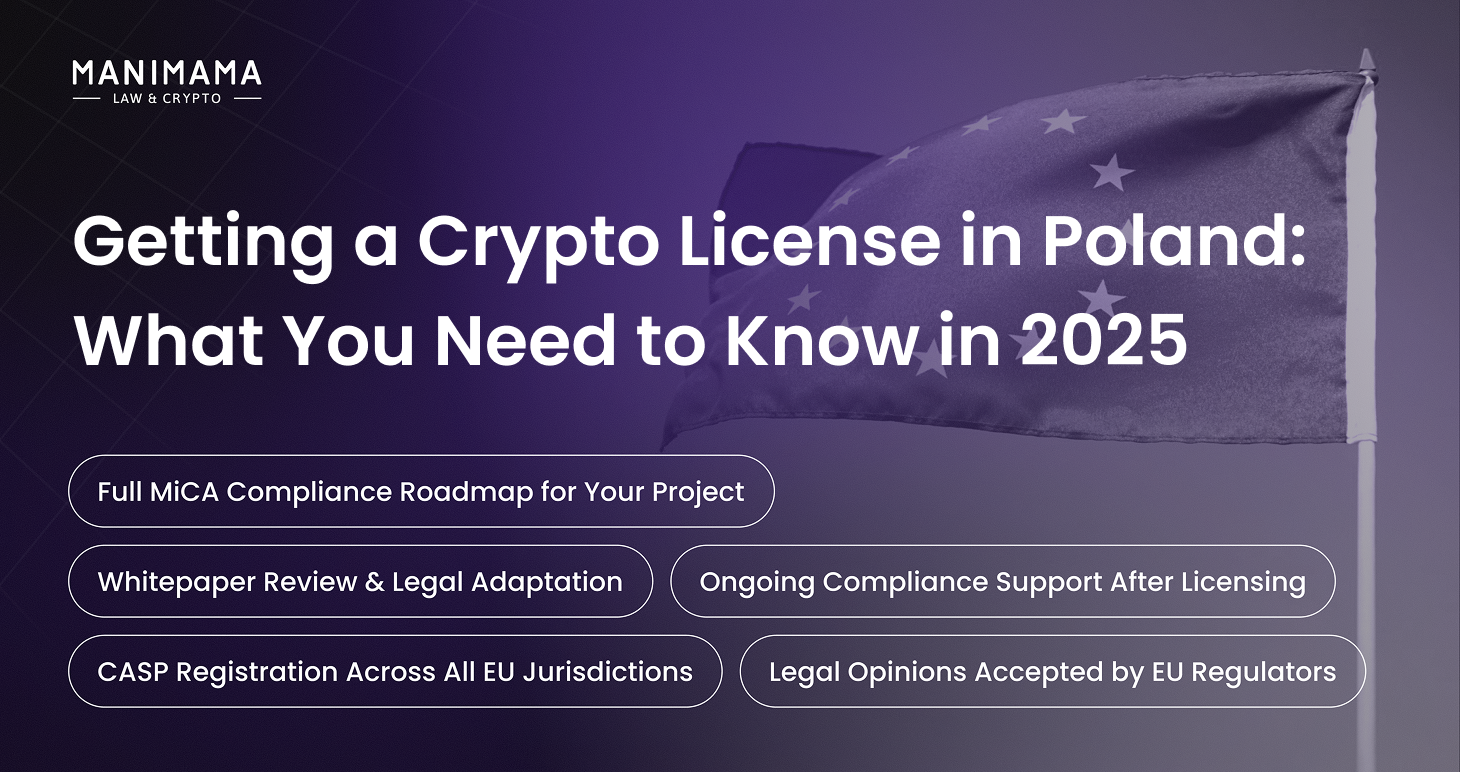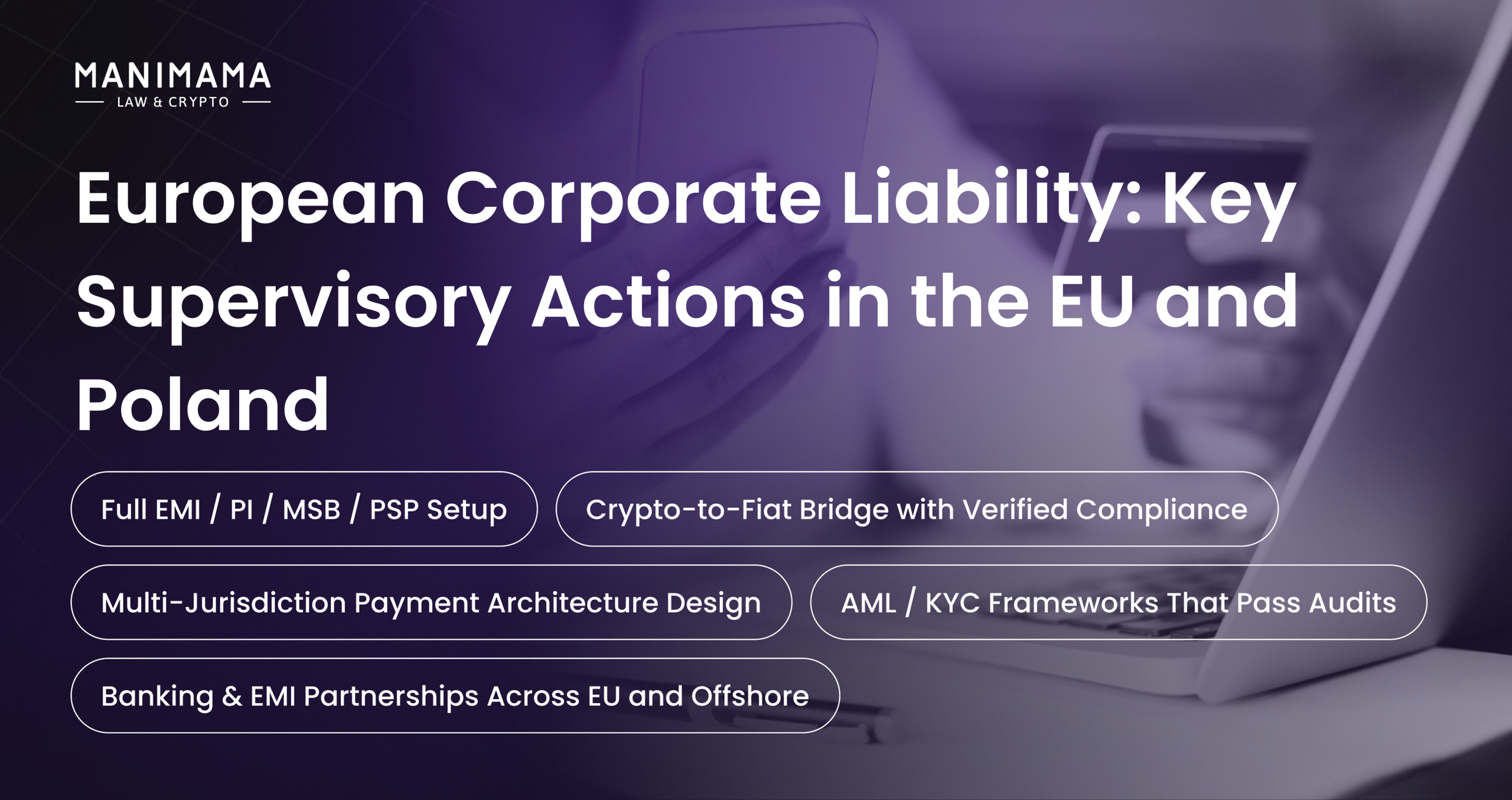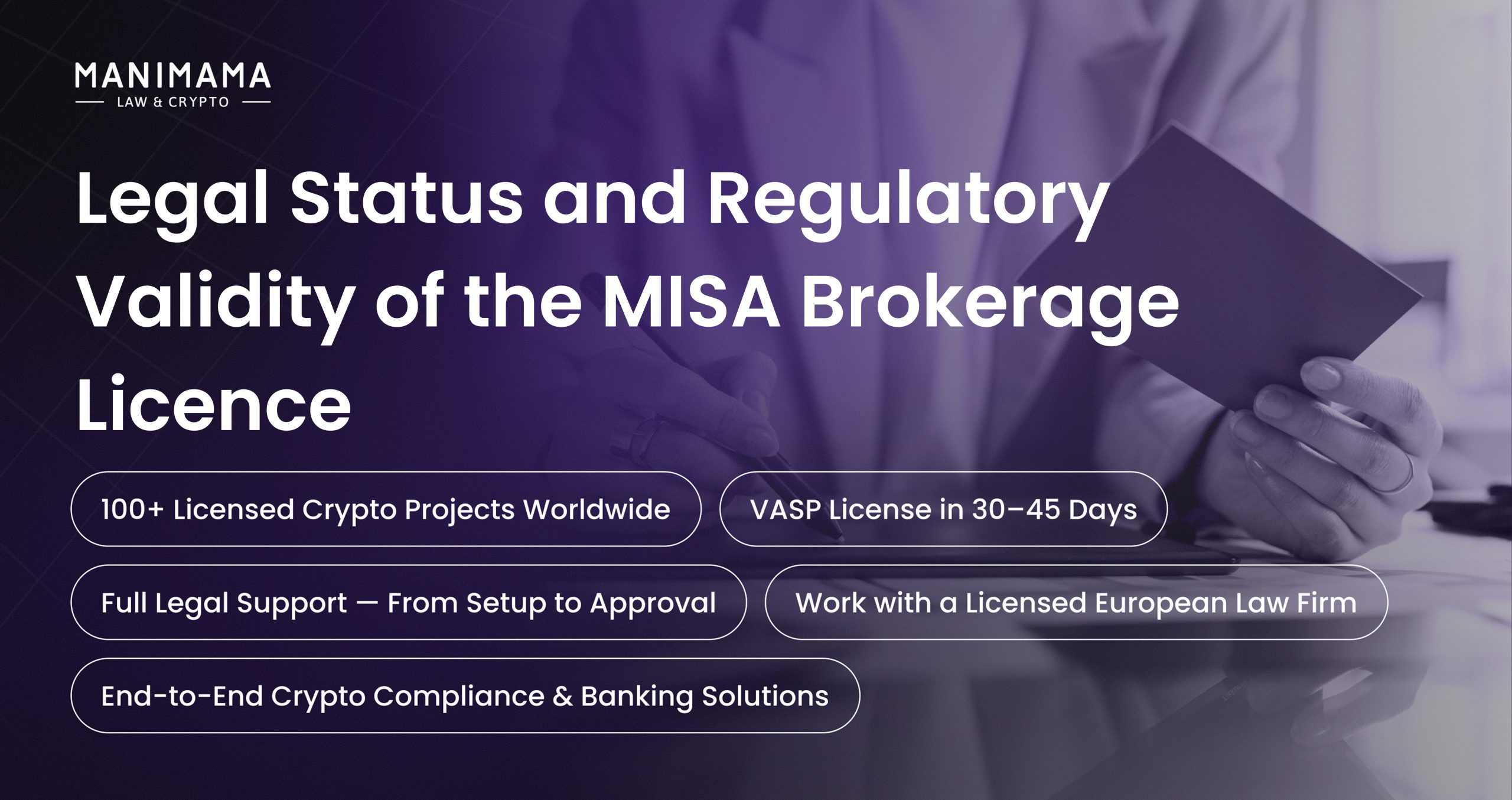Poland has quickly become one of the most attractive places in the EU for cryptocurrency businesses. With the arrival of the Markets in Crypto-Assets Regulation (MiCA) at the end of 2024, the rules of the game are changing for everyone operating in the sector. 2025 is a decisive year: existing companies must adapt, and new entrants must comply with the updated standards to gain access to the European market.
This article explains what MiCA means in Poland, how the new crypto license operates, and the steps companies should take to remain compliant.
What is MiCA and why does It Matter
MiCA (Markets in Crypto-Assets Regulation) is the EU’s first unified legal framework for digital assets. It came into effect on December 30, 2024, and now applies directly in all EU member states, including Poland.
Under MiCA, crypto-asset service providers (CASPs)—such as exchanges, custodians, wallet operators, and token issuers—must obtain a single EU license. This replaces Poland’s old Virtual Asset Service Provider (VASP) register. Instead of fragmented national rules, businesses now operate under one EU-wide framework, with the ability to “passport” services across all 27 member states.
For companies, the message is clear: if you want to serve clients in Poland or elsewhere in the EU, you need a MiCA license.
The 2025 Transition Period
Poland has set a clear timetable:
- December 30, 2024 – MiCA officially comes into effect across the EU, and the CASP framework becomes active.
- Early 2025 – Existing Polish VASPs can continue to operate during the transition, but they must apply for a CASP license.
- October 1, 2025 – Poland will close its VASP register. As of this date, only CASP-licensed providers will be permitted to operate legally.
- Mid-2026 – Final transition deadline. All crypto providers must hold a MiCA/CASP license.
In short, 2025 is a “last call” for compliance. Firms that miss the deadline risk fines or being forced out of the market.
Who Needs a License
A crypto license in Poland is required for any company offering:
- Crypto-to-fiat or crypto-to-crypto exchange services
- Custody of digital assets or private keys
- Operating a trading platform
- Transfers of crypto assets on behalf of clients
- Portfolio management or crypto investment advice
- Issuance of tokens or stablecoins
Even if you are offering only one of these services, you must obtain authorization.
Requirements for a MiCA License in Poland
Compared to the old VASP regime, MiCA sets a higher bar. To obtain a license, companies must demonstrate to regulators that they are financially stable, technically secure, and compliant with AML regulations.
Core requirements include:
- Minimum share capital: from €50,000 (advisory services) up to €150,000 (exchanges and custody providers).
- Local presence: incorporation in Poland or the EU, with at least one director or key manager resident in the EU
- Fit and proper management: directors and officers must have a clean financial and criminal record
- AML/KYC compliance: robust anti-money laundering policies, customer due diligence, and transaction monitoring
- Technical security: IT infrastructure, cybersecurity controls, internal audits, and risk management
- Regular reporting: ongoing supervision by the Polish Financial Supervision Authority (KNF)
Regulators will scrutinize business plans and internal policies closely, so thorough preparation is essential.
The Cost of Compliance
Launching a regulated crypto business in Poland is not cheap. Entry costs typically include:
- Capital requirements: €50,000–150,000 depending on activity
- Application fee: around €4,000–4,500
- Annual supervisory fees: up to 0.4% of crypto-related turnover (minimum €500)
- Operational costs: legal support, compliance systems, IT infrastructure, audits, and staffing
For exchanges or custody providers, the real cost of market entry often runs into several hundred thousand euros.
How to Get Licensed: Step by Step
- Compliance audit – Map your services against MiCA rules and assess AML/KYC readiness.
- Set up an entity – Incorporate a Polish or EU company with proper governance.
- Secure share capital – Deposit the required minimum before applying.
- Prepare policies – Draft AML/KYC procedures, risk management, and IT security frameworks.
- Appoint key individuals – Nominate qualified directors and compliance officers who meet “fit and proper” criteria.
- Business plan – Show financial projections and long-term sustainability.
- Submit application – File documents with the KNF.
- Respond to queries – Be ready to clarify points or provide additional details.
- License approval – Once authorized, operate legally in Poland and across the EU with passporting rights.
Why It’s Worth It
Holding a MiCA crypto license in Poland offers several advantages:
- EU passporting – One license covers all EU member states.
- Market credibility – Regulatory approval builds trust with customers, banks, and partners.
- Investor confidence – Licensed entities are more attractive to venture capital and institutional investors.
- Legal certainty – Reduced risk of fines or forced shutdowns.
- Scalability – Easier expansion across the EU.
For startups, the license signals legitimacy. For larger companies, it serves as a gateway to institutional adoption.
What Changes in 2025
From 2025 onwards, all crypto providers in Poland must:
- Hold a MiCA license or stop servicing EU clients.
- Maintain capital and local presence.
- Implement AML/KYC procedures and report suspicious activity.
- Disclose information regularly to KNF.
- Adhere to EU-wide marketing and consumer protection regulations.
These obligations apply to exchanges, custodians, brokers, wallet providers, and issuers of digital assets.
Final Thoughts
Poland’s crypto market is entering a new era. With MiCA in force, the days of light-touch registration are now behind us. The new system raises the bar but also opens up opportunities: a Polish CASP license provides access to the entire European market under a single framework.
For businesses, 2025 is the year to act. Whether you’re already a VASP or planning a new launch, now is the time to prepare documentation, strengthen compliance, and secure authorization.
Those who adapt early will not just stay in business—they will gain a competitive edge in Europe’s regulated crypto economy.
Our contacts
If you plan to obtain a crypto license in Poland or transition to MiCA compliance in 2025, our team will guide you through the entire process – from documentation and compliance setup to communication with the KNF. We assist companies at every stage, ensuring full legal and regulatory readiness.
Email: support@manimama.eu
Telegram: @manimama_sales
Stay informed about MiCA and crypto licensing updates in our Telegram channel: Manimama Legal Channel
The content of this article is intended to provide a general guide to the subject matter, not to be considered as a legal consultation.











